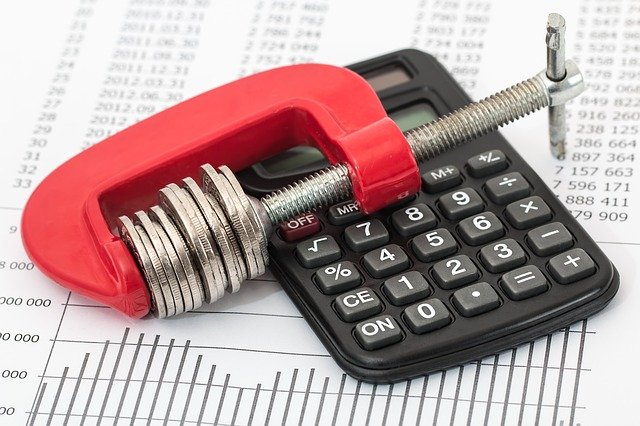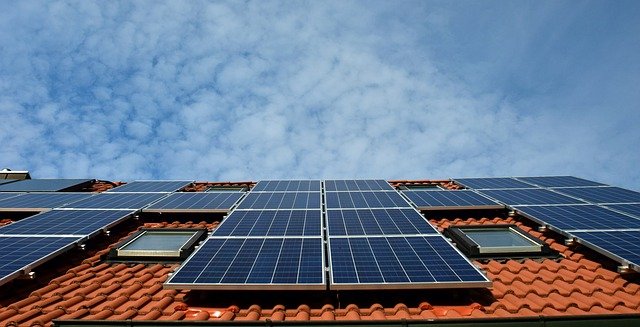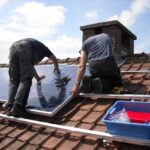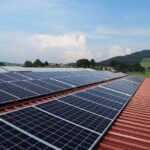All solar companies run a variation of the famous sales pitch, “do you know going solar will save you thousands of dollars annually?” The salespeople make capturing the sun’s energy for home use look so easy, but are solar panels worth it? It’s advisable to read this simple guide to dissect the sales jargon and determine if you are really saving some cash.
As the federal tax credit reduces from 30 percent in 2019 to 22 percent for systems installed in 2021, American homeowners have to decide whether installing solar panels is worth it. The answer depends on various factors, including your location, roof space available, and how much power you require. Use the solar panel cost calculator that takes in all these factors while calculating the potential return on investment for your home.
Alternatively, read on to get up close and personal with what it takes to determine whether solar is the best option for your home.
Review your current electric bill
Your bill is critical for determining how much you are likely to save once you install solar. Homeowners pay a utility company for each kilowatt-hour (kWh) of electricity they consume. In some parts of the country, the rate can be as low as 8 cents a kWh and others spend as much as 20 cents and more.
Going solar means you are installing a mini power plant on the roof, replacing the traditional power plant that utilities use to generate electricity. So, if your current electric rates are high, you are more likely to save more once you convert to a solar power source.
The average payback period for residential solar panels
The payback period is the time it will take for savings on the electric bill to equal the amount you have invested in the solar system. On average, the payback period for residential solar systems is about seven years with a return on investment of about 14 percent. However, the period will depend on your specific state of residence and even by regions in the state.
Solar panel cost for home installation

A significant proportion of investing in solar panels is the installation and actual purchase price of the panels.
The minimal maintenance expenses make up for upfront costs. Residential solar power systems require little in terms of maintenance costs, and they can produce consistent power for up to 20 years with little change.
You must review your solar equipment options to find one that offers a balance between quality and price for your home. As you calculate the total upfront price, consider your monthly usage (the figures are on your bill) and the system size you require generating that amount for your home.
Don’t forget to look into solar rebates and incentives available in your locality, they have the potential of reducing the net cost by up to 50 percent. The federal government is currently offering a 22 percent solar tax credit, and different states and municipalities provide extra incentives. A few utilities are also offering cash rebates to their customers to encourage the move towards solar.
Plus, the price of residential solar panels is dropping fast! In the past decade, solar panel prices have fallen by over 70 percent. It’s encouraging to see that prices dropped by 5 percent in 2019 alone.
Watch current trade policy
Government trade policy affects prices. President Trump in January 2018 imposed the four-year imported solar panels and cells tariff starting at 30 percent and dropping by 5 percent annually until February 2022.
The tariff means that the average consumer pays more for each watt produced. Prices of foreign-manufactured solar equipment will drop, reducing the effect of the tariff with time, and so does the federal tax credit you receive. If you are still on the fence about going solar, you are likely to save more if you make the move now than waiting.
Suitability of the roof
Another critical factor to answering the “are solar panels worth it?” question is determining how suitable your roof is for the panels. Some considerations professional installers take into account include:
- The size of the roof
- The direction the roof is facing
- Roof pitch
- Amount of the roof’s area that is shaded
Larger, southern-facing, unshaded roofs are suitable for solar power installation and production. However, always consult the professionals for an accurate picture of where the panels should go and how much electricity they can produce.
Should the installation include a solar battery?
In many areas, homeowners don’t have to purchase a solar battery when installing solar panels on their roofs. Many utilities provide a net metering technique that allows you to sell your excess energy from solar panels to a power company instead of storage in a battery.
When considering whether solar panels are a viable option, consider how high electric rates are and whether your utility provides retail net metering. Locations with high electric rates and full retail net metering services are some of the best areas for installing solar.
That said, it is worth installing a solar with a battery system, even a tiny house battery bank will suffice if you do not receive net metering in your area.
How you finance the solar panel system
Whether you are purchasing or leasing solar panels has a big impact on the system’s overall value. Making a cash purchase allows you to save more compared to other options. However, even opting for a zero-down solar loan can see your savings reach the region of tens of thousands.
Power Purchase Agreements (PPAs) and solar leases don’t require money down and provide you with a maintenance-free option. Both financing options will also help you realize savings from your utility power bill.
Make that call
The easiest way to answer the question “are solar panels worth it?” is by calling in the professionals for accurate savings and cost estimates customized to your home and energy requirement. Beach Cities Solar Consulting LLC has helped thousands of homeowners go solar, add value to their properties, and save money. Contact them today if you have questions about professional residential solar system installation.
Related Posts












